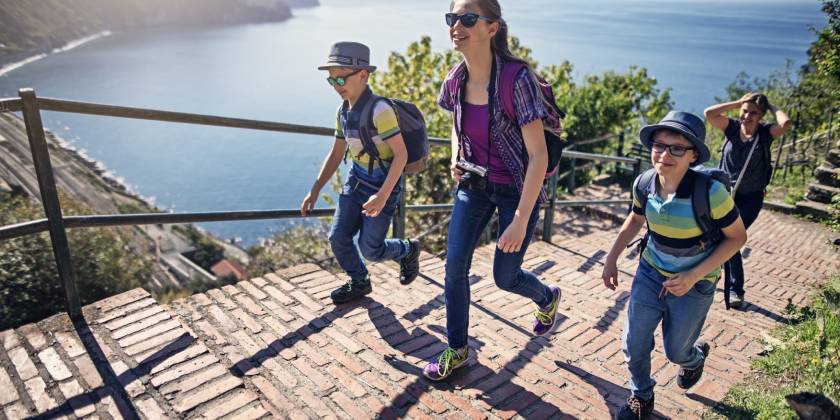10 tips for staying safe on holiday

If you are planning a holiday, you might be concerned about the potential risks and dangers involved with travelling and being away from home. You can minimise the risk if you plan your trip in advance and take all precautions to protect your personal safety and belongings. Read on for our 10 tips to help you, your family and friends stay safe while on holiday here in Australia or overseas.
- Plan before you go – Book accommodation prior to leaving and have the address and directions in a hard copy with you. If planning a longer trip, like an extended trip overseas, book accommodation for at least the first few nights and then plan the rest as you go along.
- Get to know the area – Research the area of your chosen destination before you leave. When you arrive and check into your accommodation, ask reception for a map and for some general directions to points of interest, restaurants, cafes etc. Take a walk around during the day to get familiar with the area.
- Lock it up – Most hotels and hostels have security deposit boxes where you can lock up your valuables including your passport, wallet and laptop. Carry only what you need and just enough cash for the day. When you’re leaving for the day, make sure the room is locked. If staying on the ground floor, make sure to lock up the windows. If staying with a friend, it may also be wise to leave together so that you know the room is definitely locked. Be aware of your belongings at all times when you’re travelling, and keep suitcases locked when in transit.
- Contact your bank – If you're going overseas, tell your bank which dates you will be out of the country. Be aware of the daily withdrawal limit and enquire into whether you have card protection for your debit and credit cards. Separate your money and have multiple cards. Take one card out with you and leave the other one in the hotel safe. Photocopy your passport before you go and keep a form of ID on you at all times.
- Be aware of your limits – If you’re in a different country or even a new town in Australia, it’s good to know your limits when drinking alcohol. Alcohol in a different country can be stronger than at home so it is best to play it on the safe side and drink in moderation. The chances of having an accident are greatly increased when you’re under the influence of alcohol. Remember to keep your drink with you at all times, and don’t let strangers buy you a drink without watching them be poured.
- Stay with the group – You will be much more vulnerable to burglary and scams if you are alone. If travelling with a group, stay with your fellow travellers and don’t go off by yourself. If travelling on your own, join a tour group to see the sights with a guide. If you’re out at night and meet someone new, arrange to meet them the next day rather than going with them to a place you’re not familiar with.
- Wear sunscreen – Holidays are for soaking up the sun and getting some relaxing beach time in, but don’t forget to slip, slop and slap. Be careful that a day in the sun doesn’t turn into serious sunburn from not wearing sunscreen, and remember the sun still burns outside of Australia.
- Driving – If you’re in another country, check that your licence will be acceptable for driving on the local roads and also make sure your travel insurance will cover you if there’s an accident. Only hire a motorbike or scooter if you have learnt how to ride one at home first.
- Beware of scams – Unfortunately where tourists go, so do thieves and scam artists. Watch out for people trying to give you a “free blessing”, “friendship bracelet” or a mysterious piece of lavender. These tokens may not turn out to be as free as you originally thought. Be wary of large groups walking in your direction, as this can be a decoy to distract you while you are being robbed.
- Consider travel insurance – When planning your next adventure, it’s important to consider travel insurance. It’s designed to help cover you against some of the many unexpected things that can happen on holidays. Make sure you choose the right policy for your needs and always read through the PDS to see what you are covered for.
26 Jun 2013